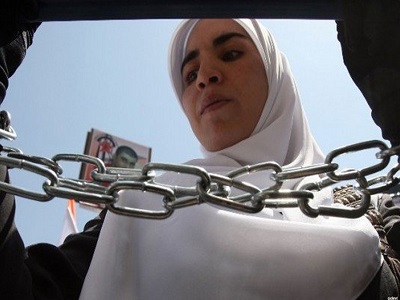
The head of the Palestinian Committee of Prisoners’ Affairs released a statement on Wednesday saying that twenty-three Palestinian women had reported being assaulted by Israeli prison officials in Israel’s Damon prison.
Issa Qaraqe said that Palestinian lawyer Hanan al-Khatib had visited the prisoners in Damon, where she learned that special units of the Israel Prison Service (IPS) assaulted female Palestinian prisoners and imposed punitive measures against them.
Among the punitive procedures, added al-Khatib, was the confiscation of the prisoners’ belongings, deprivation of family visits, restriction on accessing the prison’s canteen, and the imposition of fines up to 700 shekels ($199).
There are currently 56 Palestinian women prisoners in Israeli jails; the youngest among them is Malaak al-Ghaliz,14! https://t.co/Bl3srcjAef
— eman qasim (@EmanQasim) June 6, 2017
She added that as of July 3, the situation in the prison had begun to return to normal, and that all prisoners had been released from solitary confinement, excluding Shirin Issawi, who has remained in solitary detention.
The prisoners have however still been deprived family visits and from purchasing products from the prison’s canteen.
The statements came following a visit Qaraqe had made on Tuesday to the family of the youngest female Palestinian prisoner 14-year-old Malak Muhammad Yousif al-Ghalith from al-Jalazun refugee camp in the central occupied West Bank district of Ramallah, who was detained on May 20 at Israel’s Qalandiya military checkpoint.
Most of the Palestinian women detained by Israeli forces are held in HaSharon or Damon prison, both located in Israel, in direct violation of international law that states that an occupying power must hold detainees within the occupied territory.
Palestinians underwent a mass 40-day hunger strike earlier this year, in which among the demands were that Israeli authorities gather all female Palestinian prisoners in HaSharon prison, that arrangements be made for visits from the husbands and children of imprisoned Palestinian women, that they be permitted to receive materials for handicrafts, and that a special system be introduced for their transportation from prison to courts.
(Maan, PC, Social Media)





